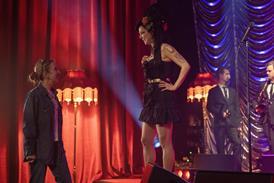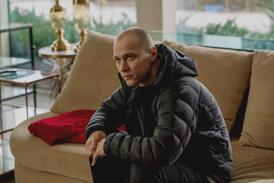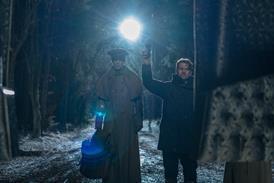Dir: Nicolas Philibert. France. 2002. 104mins.
A film to play truant for, To Be And To Have is a warm, serene look at primary education in the French heartlands. This is the latest feature from leading French documentary filmmaker Nicolas Philibert, and it is a measure of his growing reputation that it was selected - albeit out of competition - for the last Cannes Film Festival. (It was up to Michael Moore's Bowling For Columbine to show that documentaries had a competitive place on the Croisette). Now Philibert's film has gone on to become the sleeper hit of the new French season'with nearly 628,544 admissions nationwide in only four weeks and an potent word-of-mouth that is keeping it near the top of the box office charts, having taken $3.3m. Overseas festivals and art cinemas will definitely go for this outstanding, non-fictional gem.
Philibert, whose previous films have ranged widely in subject matter (from the Louvre museum to the social life of the deaf) takes his camera inside a surviving rural institution: the "classe unique," a single-class school where all the village children study every subject on the curriculum, from arithmetic to gym, under a single schoolmaster. These schools can still found in many areas where there are not enough school-age children to justify the installation of a traditional school and teaching staff. Philibert sets his sights on a school in the Auvergne, where a dozen children, aged 3 to 11, study under the benevolent guidance of Georges Lopez, 55, who has 35 years of teaching experience behind him and is just a year-and-a-half away from retirement.
Unlike someone like Michael Moore, Philibert doesn't have a thematic axe to grind or any socio-political agenda. At a time when the French educational system is convulsed by debate over reforms, his non-doctrinaire approach may seem downright conservative. But by unobtrusively setting his camera up and simply watching, Philibert show how a one man's powerful personal commitment can make all the difference in young hearts and minds.
This is a feel-good film in the noblest sense: generous, un-manipulative, and genuinely concerned with its subjects. Philibert has lucked out in finding a teacher like Lopez, whose manner with the children is always caring, patient and even-handed. Indeed, since the film's release Lopez has become a sort of national hero, the embodiment of the finer qualities of French country life.
The film-maker has also found a group of children whose personalities are warmly magnified by his attentive camera eye: among them four-year old Jojo emerges as the film's irresistibly hapless comedy star whose escapades include a hilarious run-in with a photocopy machine. And there are sadder children like homely 11-year Nathalie whose introspective facade Lopez tries to breach in one particularly touching sequence.
Philibert, who also lensed and edited, shot some 60 hours of film during a six-month shoot from December 2000 to June 2001, which allowed him to record seasonal changes. The periodic shots of surrounding nature and farm life act as poetic strophes that give the film a lyrical, cinematic quality.
Prod cos: Maia Films, Arte France Cinema, Films d'Ici, Centre National de Documentation Pedagogique
Fr dist: Diaphana
Int'l dist: Mercure Distribution
Exec prod: Gilles Sandoz
Cinematography, ed: Philibert
Music: Philippe Hersant
Cast: George Lopez and his students of St-Etienne-sur-Usson school


















No comments yet